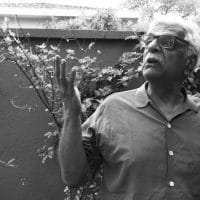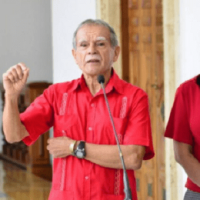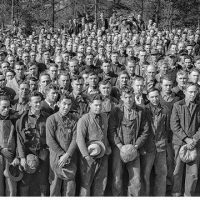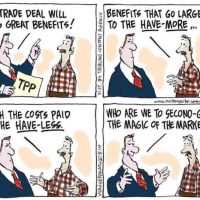-
New CIA director Gina Haspel oversaw torture at a black site then lost evidence of it
As “chief of base” of a CIA Black Site in Thailand, Haspel oversaw the torture and waterboarding of Abu Zubaydah, who still hasn’t been charged with a crime.
-
2008 financial collapse all over again…? We need to understand the student loan speculation bubble
For those who may have missed it, a major economic indicator emerged regarding student loan debt last week. Excessive debt, like student loans, has become one of the biggest barriers to current economic growth in the United States. On Thursday, March 1, 2018, the Chairman of the Federal Reserve, Jerome Powell, appeared before U.S. Congressional representatives.
-
Cuban women: A revolution within the revolution
It is almost impossible to talk about future projects in Cuba or the work done over all these years to construct a socialist society, without mentioning the role of women in decision making and their contribution in key spaces since the triumph of the Revolution on January 1, 1959.
-
The New York Times’ uncanny comparison of Leopoldo Lopez with Martin Luther King
Journalistic standards simply don’t apply when it comes to the NYT’s coverage of Venezuela’s radical right-wing opposition, argues University of Oriente Professor Steve Ellner.
-
Utopia and healthcare (part 1)
I’ve written quite a bit about the U.S. healthcare dystopia over the years—including a seven-part series back in 2016.* But I haven’t yet addressed the utopian dimensions of healthcare reform.
-
The U.S. can’t revive the Monroe Doctrine or expel China from Latin America, but it can inflict pain on the region
In this MPN exclusive, we speak to Monthly Review editor John Bellamy Foster and Latin America studies scholar Harry L. Simón Salazar about the U.S. fight to maintain hegemony in Latin America, the rise of the right wing, and the danger of “regime change” in Venezuela.
-
“The Left is a bit stuck in what needs to be done today”
In September 2017, Tariq Ali visited our office in São Paulo for a long conversation. Here’s what he said about Chávez, Lula and the end of the “pink tide” in Latin America
-
What do we mean by socialism?
What the hell is socialism, anyway? Over the last decade, it has been one of the most frequently looked up words in the Merriam-Webster dictionary. And it’s easy to see why so many people feel the need for clarification.
-
Federal court denies Trump’s last-ditch attempt to derail the youth climate lawsuit
A federal court has denied the Trump administration’s last-ditch effort to prevent a landmark climate lawsuit from going to trial. It called the motion “entirely premature” and argued that the administration had failed to reach the “high bar” required for dismissal.
-
The lesson from West Virginia teachers? If you want to win, go on strike
For many years now, observers have been ringing the death knell for the U.S. labor movement. West Virginia teachers haven’t just pumped life back into that movement—they’ve reaffirmed the fundamental principle that the key to building power and winning is for workers to withhold their labor.
-
The world market, ‘North-South’ relations, and neoliberalism
This article argues that Marx, too, knew more about the future than his present. Indeed, far from being merely a theorist of mid- to late-19th century capitalism, he elaborated the basic mechanisms, tendencies, counter-tendencies, contradictions, and social antagonisms that still shape capital accumulation and bourgeois societalization at the start of the 21st century.
-
Five years on: the revolutionary legacy of Hugo Chávez
Five years have passed since the death of Hugo Chávez. I had known him for almost ten years and had an enormous respect for his courage, honesty and dedication to the fight against oppression and exploitation.
-
Oscar Lopez Rivera calls U.S. intervention in Puerto Rico ‘biggest experiment in neoliberalism’
Oscar Lopez Rivera, the anti-colonial leader from Puerto Rico, has criticized the United States’ callousness and “experimental” approach towards the U.S. colony.
-
The poison and the tomb
It takes three days on the open sea to journey from the Marshall Islands capital to Enewetak Atoll. You can’t see the atoll until you’re just miles away as it’s only feet above sea level. As you get closer, the sun fades behind clouds and the islands are shrouded in mist. Beaches are fringed not by coconut palms but Australian pines, trees praised for soaking up salt-spray and airborne radionuclides.
-
U.S. workers and their decades of lost earnings
It happened gradually, but thanks to the U.S. media, economic news has largely been reduced to stock market reporting. Want to know how the economy is doing? Check the S&P 500 Index. Want to know whether the latest Trump proposal is good or bad? Check the S&P 500 Index.
-
Race traitors wanted: apply within
The term “white working class” captured much of the media analysis which sought to explain Trump’s meteoric rise and subsequent victory to the highest office in the United States. The obsession with polling and voting trends based in demographics is certainly nothing new.
-
The media’s fake news about Latin America
TIM YOUNG demonstrates how Western coverage of South America is heavily biased against the continent’s progressive leaders, movements and governments.
-
Utopia and trade
Donald Trump’s decision to impose import tariffs—on solar panels and washing machines now, and perhaps on steel and aluminum down the line—has once again opened up the war concerning international trade.
-
Too hot to handle: Facebook mistakes Willendorf Virgin for porn
“An archaeological object, especially iconic, should not be banned from Facebook,” the Museum of Natural History in Vienna said.
-
Bubbles, stocks and crashes
WHAT is happening in the U.S. economy provides an object lesson on the functioning of neo-liberal capitalism. Pre-first world war capitalism which had witnessed the long Victorian and Edwardian boom had relied on the colonial arrangement for the system’s dynamics.




















